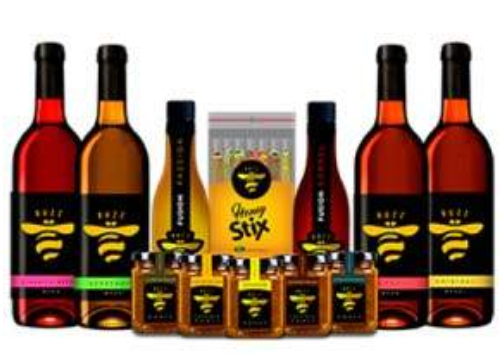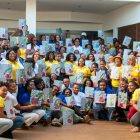Can business ‘do’ good in Jamaica?
‘Yes, it can,” says Grace Foster-Reid who turned her family’s farming business in Balaclava, St Catherine, into Ecofarms, a social enterprise that creates both profit and a positive social impact.
Businesses like hers are increasingly common, thanks in part to the Social Enterprise Boost Initiative (SEBI), powered by JN Foundation and USAID, which has fostered the growth of this sector in Jamaica. It is also in part due to an increasing trend among millennials wanting to find new ways of earning an income and to ‘give back’.
In her forties, Foster-Reid reckons she’s more ‘big woman’ than millennial, but she acknowledges the common ground with her fellow SEBI entrepreneurs, young and elder.
“I believe in a country such as ours that has many social and financial problems, social enterprises have a critical role in helping to heal this nation. When the social enterprises work correctly they create the financial and social stimuli to help Jamaica achieve its Vision 2030 goal to make Jamaica the place of choice to live, work, raise families and do business’.”
A Massachusetts Institute of Technology (MIT)-trained engineer, and veteran of the bauxite industry, Foster-Reid had set out both to revolutionise production at the family farm and to create jobs for community members. In fact, her e-mail signature is a neat synergy of these two goals: “Creating 100 Jamaican jobs through innovating honey.”
She set out in this journey without being aware of the term social enterprise. However, this of course provides the answer to the question, Can business do good for Jamaica?
“I started this business with a mission to create 100 Jamaican jobs,” she says. “However, I didn’t realise that this was a definition of social enterprise. So I took my time to go about setting up my business like a traditional business and focused on setting up systems to grow the business. As a matter of fact, I didn’t have much of an understanding of social enterprise until I met SEBI and went to the function at the US Embassy. This is when I realised that I was an ‘ugly duckling’ for all of these years.”
Far from being ugly, Eco-Farms honey products greet the eyes with international-quality packaging that would stand out on the shelves of any overseas supermarkets. Most importantly, what’s inside is premium, ecologically farmed Jamaican honey. Not being purely for profit doesn’t mean social enterprise should sacrifice on quality.
A balance can be found, as Foster-Reid has found hers, having employed nine Jamaicans towards her target of 100 employees. She’s also managing to employ peoplefrom marginalised groups; with most of her team being deaf and single mothers.
“The main challenge I experienced was that everyone expected me to focus on the bottom line. However, I knew that while profit was important and necessary to fund my social mission, that it was not the only important factor. Over the years, I realise that anytime I am out of sync or balance that I don’t do well. So if I focus mostly on the social mission the financial profit suffers. If I focus mainly on the financial profit, the social mission suffers. So I have to always make sure that the organisation is in balance.”
Being involved in SEBI since the start of 2018 has helped accelerate Ecofarms’ development as a business, and seal two deals, including one with a multinational that Foster-Reid believes will help double her sales. SEBI also provided funding to convert Ecofarms’ beekeeping operations to 100 per cent natural components: from plastic to wood and beeswax. This year the production process became fully automated.
“My employees have always bought into the social mission. However, it is most difficult to sell the social mission to our financial stakeholders. They will always be interested in the profit and are impatient with the time that it takes to build a social mission,” she says.
If you’re considering becoming involved with social enterprise, but have traditional concerns, rest assured, she says: there’s a solution, and it’s the universal credo of businesses worldwide.
“Results. Results dispel all fears!”
See the original article here!




